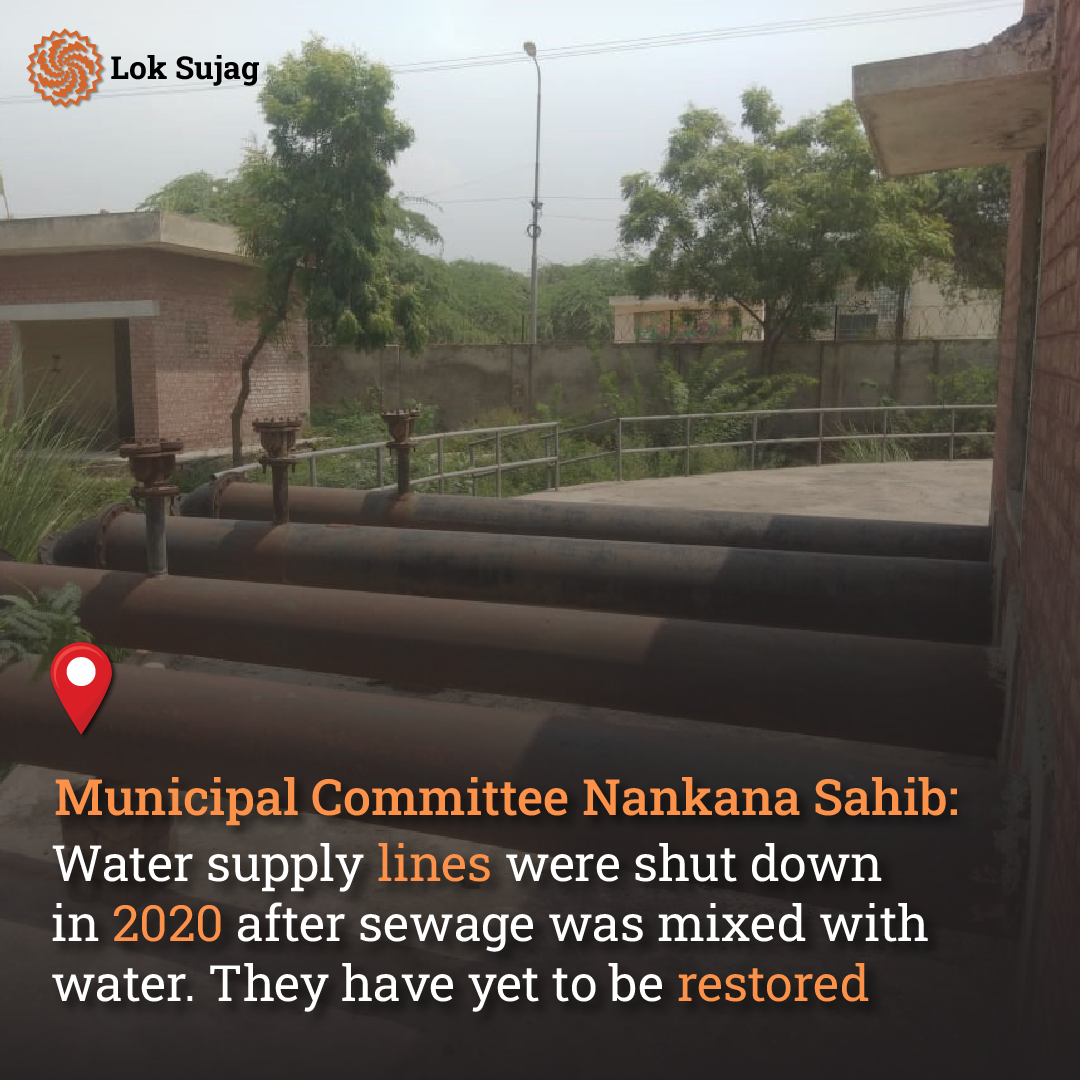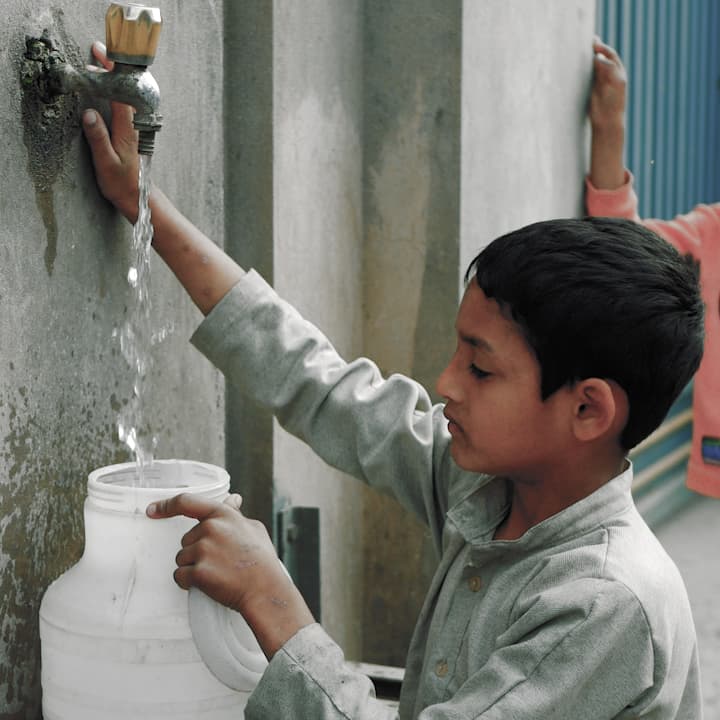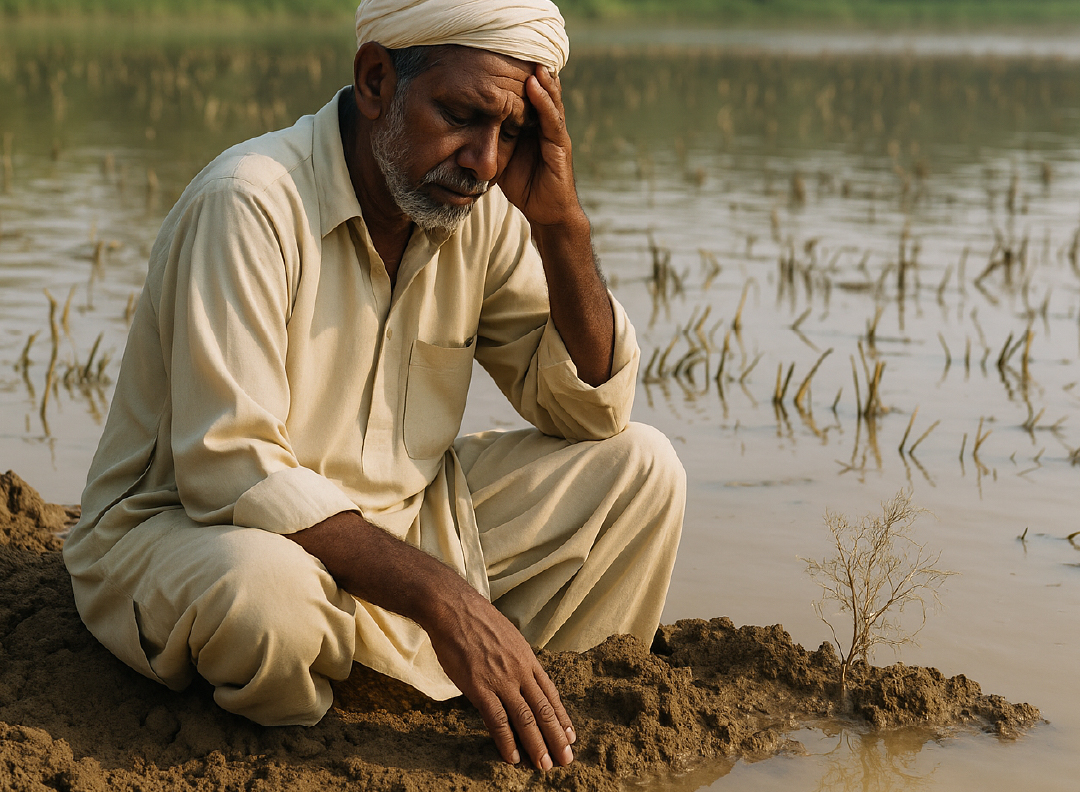Eighteen years have passed since Nankana Sahib got the status of a district, but clean drinking water has still not been provided to the people here. A water supply was laid 14 years ago to bring clean water to the city, but the water is polluted. Citizens have no other source of clean water and no one is interested in solving their problem.
The project to bring water supply to the city began in 2010, costing Rs 23 crore. As part of the project, a pipeline was laid from Upper Gogira Canal to Nankana Sahib, completed in 2012.
When the Public Health Department wrote a letter to the Municipal Committee of Nankana Sahib, requesting them to take over the responsibility for the water supply, the committee declined, stating that they lacked the necessary funds.
After a long dispute of eight years, the municipal committee finally took control of the water supply in 2020.
Once they assumed the responsibility, the committee conducted tests to ensure clean water quality. The results showed that the water lines were producing contaminated water mixed with sewage, after which the system was immediately shut down and has not been reactivated since then.

Jafar Hussain from Canada Colony attributes the project’s failure to the contractor’s alleged negligence and the incompetence or carelessness of Public Health Department officials. He mentions that a significant portion of the population relies on underground water through pumps and pipes, but even this water is no longer clean, leading to the spread of diseases. Neither the district administration nor the public representatives have taken notice of the water problem or shown any interest in resolving it.
MS Muhammad Afzal Sandhila of the District Headquarters Hospital confirms that the toxic water from the factories in Nankana Sahib has contaminated the underground water. This contamination has resulted in widespread gastrointestinal problems, jaundice, diarrhoea, cholera, and other intestinal diseases in the city and surrounding areas.
Citizens are advised to boil or use filtered water to prevent these diseases. By following such methods, he suggests that the number of patients suffering from these illnesses in the hospital can be reduced by at least 15 per cent.
Based on data obtained from the district headquarters hospital, 110 cases of various stomach diseases have been reported in Nankana in the past month. The number of jaundice patients in the city is also on the rise. The records indicate that 60 jaundice patients visited the district headquarters hospital in April, followed by 112 in May, 133 in June, and 46 so far this month.

An officer from the Municipal Committee, Nankana Sahib, who, on the condition of anonymity, discloses that water supply projects launched by the Public Health Department cost crores of rupees. These projects often have short durations, lasting only a few months or failing to commence, just like the Nankana water supply project.
“Instead of laying a new pipeline dedicated to water supply in Nankana Sahib, the Department of Public Health has attempted to connect the pipes to the deteriorated pipeline originally put in place in 1980.
“Consequently, the clean water from the canal tube wells, after passing through the old pipe, reaches consumers in a contaminated and undrinkable state,” he says.
The officer further discloses that due to these circumstances, the Municipal Committee hesitated to take on the responsibility of water supply. However, the then deputy commissioner, Raja Mansoor Ahmed, exerted pressure on the committee and transferred the project to them. “The outcome of this decision is now evident to everyone.”
In addition, he suggests that if 15 per cent of the funds allocated for this project were invested in setting up a filtration plant, not only would clean drinking water be accessible in every neighbourhood of the city but the remaining funds could also be utilised for another development project.

“With the assistance of philanthropists, a RO filter plant has been successfully installed at Rai Balar Park at a cost of 15 lakhs. This plant is now providing clean water to the residents of Parana Nankana Sahib,” he further mentions.
Until recently, numerous residents of Nankana Sahib relied on canal water vendors operating on rickshaws to fulfil their requirements for clean drinking water. But an influential group near Upper Gogir has halted the water supply to these rickshaws due to non-payment of extortion.
Consequently, this vital source of clean water for the citizens has been abruptly cut off.
Abid Hameed, a social activist, expresses his disappointment, stating that following the failure of the water supply project, his family had depended on this canal water for drinking purposes; the mafia has unjustly deprived them of this essential right.
“Due to the lack of clean water, I’ve been experiencing stomach problems, and now I have to buy water at high prices. Despite investing a significant amount of money in the water supply project, it has been discontinued, and so far, there has been no investigation or effort to resolve this public issue.”
Also Read

The deadly sweat of a factory: 'Ground water in Sambrial has become fully polluted'
However, Junaid Ahmed, a Sub-Engineer from the Public Health Department, refutes the claim that the old pipeline has been utilised in the water supply scheme. He asserts that the municipal committee wasted precious time in assuming responsibility for the water supply, resulting in sedimentation in the pipelines and the presence of murky water. He assures that once the entire pipeline is thoroughly cleaned, the problem will be resolved.
When questioned about an inquiry into this matter, Nankana’s Deputy Commissioner, Mian Rafiq Ahsan, responded that the water supply project predates his appointment and he plans to gather all the necessary details himself before initiating the inquiry.
He confirms that the Public Health Department has received complaints regarding negligence and corruption and assures that strict legal action will be taken against those found guilty. Furthermore, any defects in the project will be addressed promptly to ensure the supply of clean water to the people as soon as possible.
Published on 15 Jul 2023


















